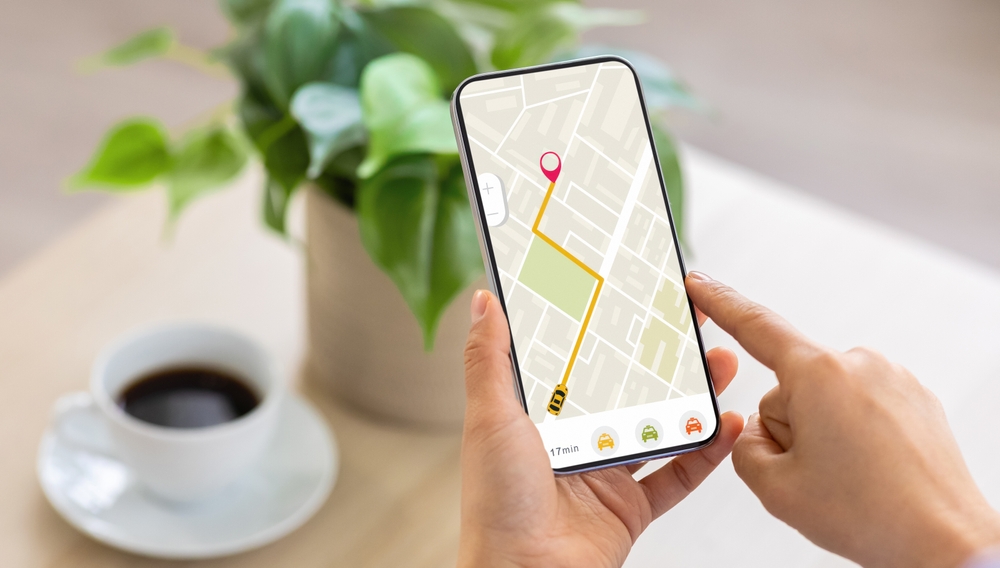
You probably already know your phone is tracking your location—but what if that’s just the tip of the iceberg? In the era of “free” apps, your personal data is the real product. Every time you grant an app access to your microphone, camera, or contact list, you’re opening the door to a hidden economy built on your private information.
Sure, location data helps with maps and delivery services, but plenty of apps collect far more than they ever need—and most users never realize it. Here are ten everyday apps that are quietly gathering data far beyond your GPS coordinates, and why you might want to rethink just how much you’re sharing.
1. Social Media Apps Know Your Every Move
Social media apps aren’t just about connecting you with friends—they’re about connecting everything you do to their ad systems. When you post a photo, they analyze where you are, who’s with you, and even what’s in the background. They log your browsing behavior, how long you pause on a post, and which types of content you ignore. These platforms know when you’re most active, what makes you scroll longer, and what mood you’re in based on your interactions. It’s not just social media anymore—it’s social surveillance wrapped in likes and emojis.
2. Fitness Trackers Record More Than Steps
You thought you were just tracking your morning jog, but your fitness app is busy building a health profile that rivals your doctor’s notes. It logs your heart rate, sleep cycles, exercise habits, and even stress levels through data patterns. Some fitness apps also gather biometric data like oxygen levels or menstrual cycle details, linking it all to your identity. This information is often shared with third parties for “research” or marketing. The irony? You downloaded the app for motivation, but it’s your personal health data getting the workout.
3. Shopping Apps Track Your Every Click
Retail and shopping apps don’t just watch what you buy—they study how you buy it. Every search, scroll, and tap becomes data to predict your next purchase before you even make it. These apps record browsing sessions, device info, and sometimes even track your location to see which stores you visit in person. They use that information to tailor ads so accurately it feels like mind reading. Before you know it, your phone knows you need new shoes before you do.

4. Weather Apps That Never Forget You
You open a weather app to check if it’s going to rain, but the app’s data engine sees an opportunity forecast. Some of the most notorious data brokers in the world have used weather apps to harvest precise location data, selling it to advertisers and analytics firms. But that’s not all—they often log usage times, device IDs, and other behavioral data. This turns your daily temperature check into a mini surveillance session. It’s wild to think that a simple “What’s the weather today?” can reveal your entire daily routine.
5. Dating Apps That Know You Too Well
When it comes to dating apps, your profile isn’t the only thing they’re analyzing. These apps collect your preferences, chats, location history, and even how long you linger on someone’s photo. Some go further, tracking swiping patterns and timing to build psychological profiles for better “match predictions.” But that data also becomes valuable marketing fuel, revealing your habits and emotional triggers. Love may be blind, but your dating app definitely isn’t—it’s watching everything.
6. Navigation Apps That Never Stop Following You
Navigation apps need your location, of course—but they also keep it long after you’ve arrived. Many store historical routes, travel frequency, and even the speed you drive to fine-tune their algorithms. Some sell anonymized movement data to city planners or advertisers who want to know traffic patterns—or how often people visit certain businesses. You might think your commute is private, but it’s often mapped, stored, and monetized. Even when you close the app, the journey doesn’t really end.
7. Gaming Apps That Spy Behind The Fun
Casual mobile games can be sneaky data magnets in disguise. They ask for permissions that have nothing to do with gameplay—like contact lists, storage access, or microphone use. Many free games rely on advertising networks that collect massive amounts of behavioral data while you tap away. They record how often you play, how long you play, and even what kind of ads make you spend money. The game might be free, but your personal data is definitely paying the price.
8. Streaming Apps That Track Your Habits
You think you’re just binging your favorite show, but streaming apps are taking notes the whole time. They log what you watch, when you pause, and what you skip, creating a profile that reveals more about you than your best friend could. These insights are used to recommend new shows—but also to sell targeted ads across other platforms. Even your watch times can indicate when you’re home, awake, or traveling. The entertainment is great, but the data collection is the real blockbuster.
9. Photo Editing Apps That Peek Behind The Lens
Those trendy photo filter apps aren’t just adjusting lighting—they’re harvesting metadata from your photos. This can include your device details, the date and time, and even location information embedded in image files. Some require unnecessary permissions, such as access to your entire photo library or camera roll, giving them a backstage pass to your private moments. And once uploaded, those images can become part of data sets used for AI training or facial recognition. What started as a quick selfie edit can easily become a privacy nightmare.
10. Productivity Apps That Study Your Behavior
From calendar tools to note-taking apps, productivity platforms seem innocent—until you realize they’re quietly analyzing how you organize your life. Many track typing speed, document frequency, and even communication tone. Some integrate analytics to see how you collaborate with others, which can be useful for teams but invasive for individuals. When all this data gets shared or sold, it paints a picture of your habits, routines, and work patterns. You might just be writing notes, but the app is taking notes on you.
Data Privacy Isn’t Paranoia—It’s Power
It’s tempting to shrug all this off with an “everyone does it,” but understanding what you’re agreeing to is half the battle. The apps we rely on daily—maps, fitness trackers, games, and even weather apps—often collect more personal information than we realize. While some of it fuels helpful features, a lot of it simply feeds the digital advertising machine. The truth is, your data is valuable, and you deserve to know where it’s going.
Have you ever discovered an app collecting more information than you expected? If so, it’s time to write about your thoughts, stories, or shock-worthy discoveries for others to learn.
You May Also Like…
10 Smart Ways to Use Your Savings Apps Without Being Exploited
How Debt-Cleanup Apps Push Paid Loans Under the Hood
10 “Security” Upgrades That Actually Broadcast When You’re Away
8 Tech Inventions That Turn Out to Be Surveillance in Disguise
Could Your Bank Be Selling Your Data Without You Knowing?
The post 10 Mobile Apps That Collect Far More Than Location appeared first on Everybody Loves Your Money.







